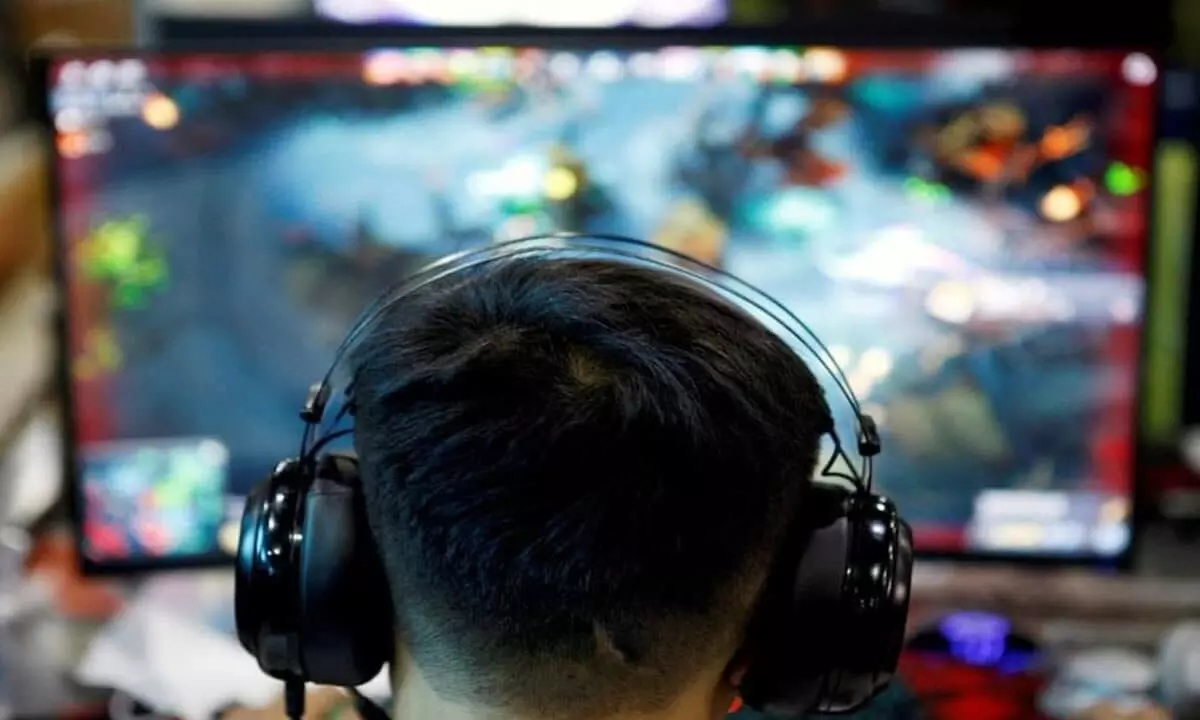Taking gaming industry to next level a must
High-quality human resources must be developed to make India a world leader in gaming
image for illustrative purpose

A year and a half ago,Prime Minister Narendra Modi urged us to be frontrunners in the field of digital gaming by developing captivating games based on our culture and customs. During the unveiling of this fiscal's budget, Union Finance Minister Nirmala Sitharaman made a stimulating revelation about the gaming industry: The government is forming a task group to prepare for the global market and meet the demands of the animation, visual effects, gaming, and comics (AVGC) industry. The State governments of Telangana and Karnataka have long-term goals of broadening gaming laws and business opportunities.
According to leading consulting firm Deloitte, developing our country's gaming sector could generate nearly 20 lakh new jobs. However, there is a proviso that we develop intellectual property rights (IPR) in the gaming industry and equip ourselves with cutting-edge development technologies. High-quality human resources must be developed in order to achieve this, and gaming companies and startups must be supported through subsidies and incentives. To move the efforts forward, explicit action is required. And it appears that the time has come. Then this becomes an excellent opportunity.
We did not consider creating intellectual property in the gaming industry for many years. It falls under the category of service industry. We believe that 'proprietary products' are highly valued. But only offering gaming, animation, and VFX services will not result in enormous wealth.
Even today, we are unable to compete with games developed by companies in Asia and the United States. Billions of dollars are invested by multinational corporations in game development and innovation. In order to attract talented human resources, they are developing cutting-edge technology and incorporating it into games. In fact, our country lags far behind in this regard. In our country, there are very few educational institutions that provide adequate training in gaming technologies.
Mobile is the Mantra
World Economic Forum depicted that games are increasingly being played on mobile phones around the world. Mobile gaming now accounts for approximately 85 per cent of it, while computer gaming accounts for only 11 per cent.
The percentage of people who use tablets to play games is 4 per cent. Mobile gaming accounts for more than half of the gaming market in our country. It is expected to grow even more. The numbers suggest that we could become world leaders in this field. Recognizing this, the government and the private sector must collaborate to promote the sector.
For example, 270 crore people have spent time playing mobile and online games worldwide in recent times. This figure will soon be greater than 400 crores. The Covid-19 pandemic was the catalyst for this push. And, contrary to popular belief, women are increasingly interested in mobile games. Several companies are working hard to create new games for this purpose. Startups in this sector have received Rs 12,000 crore in funding over the last year and a half.
As per the recent PWC research report, India's video games and e-sports revenue is estimated to reach Rs 37,535 crore by 2026, increasing at an 18.3 per cent CAGR. Technology trends like VR and Metaverse are a major shift in the gaming sector. In the near future the metaverse could become a stunningly virtually realistic world where individuals play and access immersive virtual experiences.
All of these facts illustrate that, aside from the IT industry, the gaming, animation, and VFX industries will undoubtedly play a significant role in providing employment and jobs for youth. The sector provides large amounts of foreign currency, tax money and is becoming the economic powerhouse.
(The author is Managing
Director of 7Seas
Entertainment Ltd)

